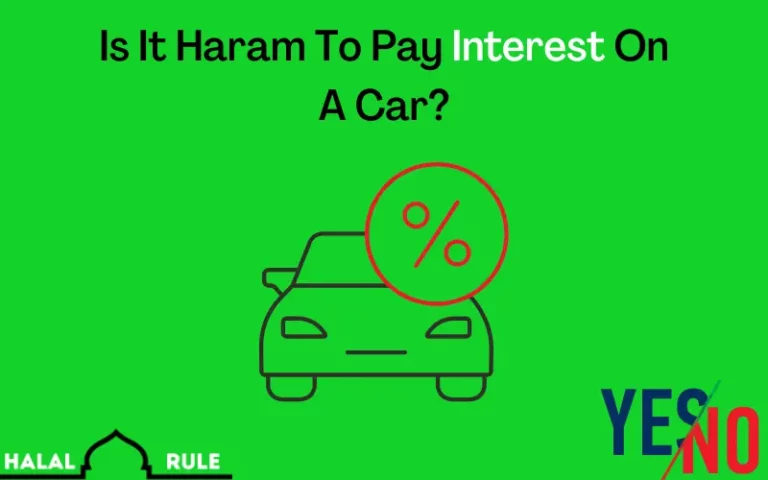Is Finance Haram Or Halal In Islam?
Finance is an important part of our lives. Whether you are looking to purchase a new car, buy your first home, pay off debt, or invest in your future, financial decisions affect your life.
But what does Islam say about finances? Is finance haram (forbidden) or halal (permissible) in Islam?
If you’re confused about the Islamic perspective on finance, you’re not alone.
In this blog post, we’ll answer is finance haram or halal in Islam and provide an overview of Islamic financial principles.
Let’s clear all the doubts related to finance.

Is Finance Haram?
No, finance itself is not considered haram, but certain practices within the finance industry may be deemed unethical or haram.
According to Islamic law, finance can be either haram or halal depending on the agreement between the parties and the nature of the transaction.
For example, collecting interest (riba) on loans is haram according to Islamic law. So if a loan agreement involves collecting or paying interest, it would be considered haram.
However, other types of financial transactions, such as buying and selling goods with mutually agreed upon terms and conditions, are permissible according to Islamic law.
To understand it better, here is an example:
A person buys a house for $50,000 and agrees to pay the seller in four installments of $15,000 each. This type of agreement is permissible according to Islamic law because it has both parties agree to terms with no interest involved.
However, if, in the same agreement, the buyer agrees to pay the seller an additional $5,000 for each installment not paid on time, then it would be considered haram because interest was involved.
In the first case, also you pay more than the value of the house, but that will become the actual cost of the house because both parties agreed, and in the second case, it is not because there was an interest involved.
In short, in Islam, any financial transaction that involves paying or receiving interest is considered haram. Instead, you should make an agreement on mutually agreed terms and conditions.
You might also like knowing is apr haram.
Understanding Finance
Finance is a broad term that refers to the management of money and other assets.
It encompasses various activities such as investing, borrowing, saving, budgeting, and managing risk.
The goal of finance is to allocate resources efficiently and effectively to achieve financial objectives.
You can also learn is home loan halal.
Is Financing A Car Haram?
Whether financing a car is haram or halal depends on the agreement between the parties and if interest is involved.
If an agreement with no interest is involved, it would be permissible according to Islamic law.
For example, if you are buying a car from a dealership and you have agreed to pay in installments over some time with increased price but without interest, then it would be permissible according to Islamic law.
However, if you are buying a car and paying installments with interest, it would be haram according to Islamic law.
For more on this you can read is car financing halal.
Islamic Financial Principles
Apart from the prohibition of interest, according to Islam, a few other important principles should be followed when making financial decisions. These include:
- Avoiding Gharar (Uncertainty): Gharar is defined as any kind of uncertainty or risk associated with a transaction. Therefore, it is important to make sure that the terms and conditions of a transaction are clear between parties so as to avoid any kind of risk or uncertainty.
- Avoiding Maysir (Gambling): Gambling is strictly prohibited in Islam, meaning that any transaction involving gambling should be avoided.
- Promoting Mutual Benefit: Any financial agreement should promote mutual benefit for both parties involved.
- Promoting Fairness: Financial agreements should be based on fairness and justice. This means that the agreement’s terms should benefit both parties, not just one party.
Alternate Financial Solutions
Due to the prohibition of interest in Islam, if you’re planning to buy a car or house, or make any other large purchases, you must be creative and find alternate financing methods.
So here are some alternate solutions that you can consider:
- Borrowing from family members or friends.
- Crowdfunding.
- Ask the seller for deferred payment plans with no interest involved.
- Participate in co-ownership with family members or friends.
- Seek support from Islamic banks which provide an interest free loan facility to meet financial needs without violating Islamic law.
- If possible, go with renting a house or leasing a car instead of buying.
If you own a credit card, you might like to know is credit card cashback halal.
What Is Islamic Finance?
Islamic finance is a system of finance that operates in accordance with the principles of Shariah, or Islamic law.
This means that all financial activities must be conducted in a manner that is compliant with the teachings of Islam, such as avoiding interest (riba) and promoting risk-sharing.
In addition, investments must only be made in halal (permissible) assets and businesses.
FAQs
Q. Is student finance haram?
A. Student finance would depend on the agreement between the parties and if interest is involved. If there is an agreement with no interest involved, then it would be permissible according to Islamic law. However, if an agreement with an interest is involved, it would be haram according to Islamic law.
Q. Is it haram to finance a car?
A. Financing a car is permissible according to Islamic law if the agreement has no interest involved and both parties have agreed to mutually beneficial terms.
Q. Is financing haram?
A. Finance can be either haram or halal, depending on the agreement between the parties and if interest was involved.
Q. Can Muslims have finance?
A. If the terms of the agreement involve interest, then it would be considered haram according to Islamic law. However, other types of financial transactions, such as buying and selling goods with mutually agreed upon terms and conditions, are permissible according to Islamic law.
Q. Is it haram to finance a house?
A. Financing a house is haram if the agreement involves interest. However, it can be permissible according to Islamic law when the agreement is based on mutually agreed terms and conditions without interest involved.
Q. Is student loan haram?
A. It depends on the terms and conditions of the loan agreement. If the loan involves collecting or paying interest, it would be considered haram. However, if you take a student loan from an Islamic financial institution that offers Sharia-compliant financing, it would be considered halal.
Q. Is collecting interest haram?
A. Yes, according to Islamic law, collecting interest (riba) on loans is considered haram. This is because it involves making money from money without any productive or tangible contribution.
Conclusion
To sum up, finance can either be haram or halal depending on the agreement between parties and the presence of interest in the transaction.
Therefore, it is important to ensure that all financial agreements promote mutual benefit for both parties, be based on fairness and justice, and avoid any risk or uncertainty.
I hope your query is finance haram or halal in Islam is now cleared.
Now that you know the basics of finance in Islam, follow these guidelines when making financial decisions to stay on the right path.






